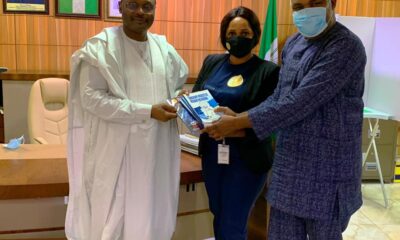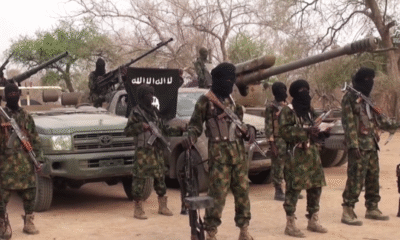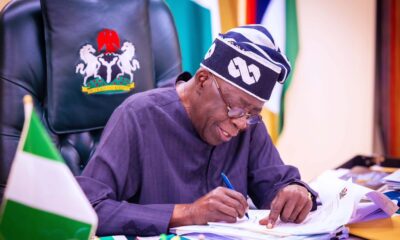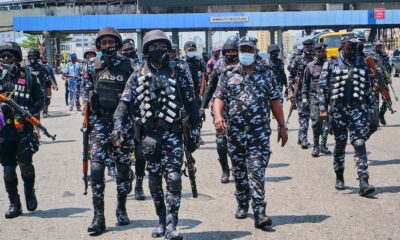News
WORRYING TREND OF ‘ALMAJIRIS’ IN IMO STATE – BY EMMANUEL ONWUBIKO

Poverty is not a new topic for journalists in Nigeria. Poverty is the most famous situation reported on daily basis in the dailies and broadcasting stations in Nigeria because in terms of demographics, there are more poor households in Nigeria than anywhere else in the developing world. The only difference is that poverty isn’t been reported as a critical development oriented issue that must be confronted by the politicians.
Poverty is sometimes glamourised to appear like it is only just an existential situation that certain people must be afflicted with for the society to be complete. But this style of reporting is nothing short of a crime against humanity because the twin purposes of government is to advance, enhance, promote, protect the wellbeing, welfare of the greatest percentages of citizens and to guarantee security of their lives and property.
So reporting poverty as if it is a natural state for certain class of people, is to say the least, the most offensive crime tobe committed by any journalists. It is therefore in this historical and pragmatic contexts that we will report about the worrying dimensions of child poverty, deprivation and destitution in Imo State regarded as the heartland of Nigeria.
Instructively, the National Bureau of Statistics said in 2018 that there were about 133 million multidimensionally poor households in Nigeria out of a population that hovers between 200 million or a little less than that.
But one aspect of the demographic errors that keep reoccurring are first, the mistaken belief that poverty is concentrated in Northern Nigeria and that child poverty, malnutrition are significantly higher in the Northern zone of Nigeria than in other places within the country with the South East been regarded as populated by families that are fantastically rich. These are inaccuracies that this piece has set out to correct.
These inaccuracies are done on purpose so as to divert humanitarian reliefs and materials to the Northern zone of Nigeria. But I found out that hundreds of thousands of children who are equally deprived and are in destitution are been shortchanged only because they live in the South East of Nigeria regarded by statisticians as not too poor.
I spent one week beginning from the 24th of December to 31st of same month last year in Owerri and my eyes saw much more than I had bargained for in terms of destitution and child poverty. I saw kids as young as 4 roaming about in the areas surrounding modern and well stocked supermarkets that dot the major business district of the Owerri urban areas and what were these children busy doing: begging for foods and begging for just the basics of survival and I saw serious starvation in their eyes and frail bodies. I wept.
This is not the Imo state that governors like Sam Mbakwe worked vigorously to set up good governance standards whereby there are equity and equality of rights and whereby children, who should be cared for in their family homes and educated in early elementary schools, are afforded those human and basic rights as citizens. Why then have certain people started using children to beg for survival and what is the Imo State’s ministry of women and children’s affairs doing by way of amelioration of the biting poverty afflicting most children roaming around major supermarkets in Owerri?
There wasn’t any contemplation that there would come a time when Imo state will produce Indigenous street beggars who are barely kids that should be at homes or be educated in their schools.
Imo state of today has a large chunk of child beggars or ‘almajiris’ who are starving to the point of near-death and may die if help doesn’t get to them as quickly as possible.
This is no exegeration. I saw these kids with my naked eyes and with my naked eyes, I wept profusely for this underprivileged children suffering from child poverty, malnutrition and are obviously exposed to the dangers of being stolen and sold as slaves by the human trafficking networks that have become even more daring than we thought. To make matters worse, there is no government’s intervention to put an end to this disturbing trend in Imo State.
You know that type of anger and pain that come to you if you are in a situation in which you have only the capacity to offer so little a help? That was the pangs of pain and lamentations that befell me at the sights of these children roaming around these supermarkets whereby other families drive into to make purchases of millions of Naira on daily basis but lo and behold, there are children hanging around that are in need of food reliefs and are open to been enrolled in schools.
I saw these children in need about the same period that many Nigerians who went out to struggle for bags of rice for Christmas and most of these poor people paid the Supreme price of deaths as a result of accidental stampede. These stories of death actually happened in the South of Nigeria and the nation’s federal capital.
STAMPEDE IN IBADAN:
A tragic stampede occurred at a youth festival in Nigeria, resulting in the loss of at least 32 lives. The incident took place at an Islamic high school in Ibadan, Oyo State, where approximately 5,000 young people and children had gathered for the event .
According to Oyo State Commissioner for Information and Civic Orientation Dotun Oyelade, the stampede led to the deaths of 32 people, with video footage showing a large crowd of mostly children looking on as some were carried off the site to local hospitals. State Governor Seyi Makinde deployed security forces to control the situation and evacuate attendees from the site.
Governor Makinde expressed his sympathies to the parents of the victims, stating that "this is a very sad day" and promising that those responsible for the disaster would be held accountable . The primary organisers of the event, identified as the Women In Need Of Guidance and Support Foundation, have been taken into custody.
The event organisers had promised participants exciting prizes, including scholarships and gifts, which drew a large crowd to the festival . Nigeria's national emergency services deployed a team to provide assistance to the victims, and investigations into the incident are ongoing.
However, Oyo State government's overzealous actions against the organisers of this charity function is misplaced. These philanthropists were only out to render help due to the widening poverty in the land and the stampede that happened was an accident that was unintended.
STAMPEDE IN ANAMBRA(OKIJA):
At least 12 people died and 32 were injured in a stampede in Okija, Anambra state, while scrambling for Christmas rice. The rice was distributed by Chief Earnest Obiejesi, also known as Obi Jackson, as part of his yearly tradition to help the less privileged.
The incident occurred when the crowd became uncontrollable, leading to a stampede. A witness attributed the cause of the deaths to the crowd's behavior, stating that hunger led people to fear that the rice might not reach them.
The event was meant to be a charitable gesture, but it turned tragic. Mrs. Maria Okonkwo, an eyewitness, described the scene as overwhelming, with people shouting and the organizers trying to control the crowd.
The Anambra Police Public Relations Officer, SP Tochikwu Ikenga, confirmed that police operatives have taken over the scene and are investigating the incident. The police are working to provide a proper investigation and further details would be communicated.
STAMPEDE IN ABUJA:
Ten people, including four children, were killed in a stampede in Nigeria’s capital city, Abuja, during a Christmas charity event at the Holy Trinity Catholic Church in Maitama. The stampede occurred in the early morning hours as a large crowd gathered to collect food items distributed by the church.
Police spokesman Josephine Adeh said in a statement that more than 1,000 people have been evacuated from the church. Viral footage from the scene showed lifeless bodies on the ground as people shouted for help. Some of the injured have been treated and discharged, while others continue to receive medical care.
When it occurred, it was the second of such stampede in a week in Nigeria, raising questions about safety measures.
Earlier in the week, several children were killed in a stampede at a funfair in southwestern Oyo state, where a local foundation was distributing gift items to kids. The recent stampedes have highlighted the country’s economic hardship, with surging inflation and a record-low local currency contributing to frustration and mass protests.
The current economic hardship under Nigerian President Bola Tinubu has led to widespread frustration, with mass protests demanding better opportunities and jobs for young people.
However, the type of poverty that worries me as a human rights practitioner is that which traps children in the unmitigated webs of economic deprivation, destitution, lack of organised and formal education and exposure to sexual violations, human trafficking and recruitment into bad criminal activities and gangsterism.
This genre of poverty walks with four legs in the streets of Owerri, the Imo State capital in the South East of Nigeria.
According to a report by World Bank, Poverty has soared to hit more than half of the population over the last six years, according to the World Bank.
“Since 2018, the share of Nigerians living below the national poverty line is estimated to have risen sharply from 40.1 percent to 56.0 percent,” it said, adding that 129 million are now living in poverty.
Multiple issues have contributed to the spike, the lender said, citing “the Covid-19 recession, natural disasters such as flooding, growing insecurity, the high cost of the demonetisation policy in Q1 2023, high inflation and low economic growth”.
The share of the urban population living in poverty has nearly doubled, from 18 to 31.3 percent, according to the report, published twice a year assessing economic and social developments and prospects in Nigeria.
“Headline inflation is anticipated to peak at an average annual rate of 31.7 percent in 2024, largely driven by the depreciation of the naira and increased gasoline prices,” it said.
The World Bank said inflation was expected to fall from 32.7 percent in September to 14.3 percent by 2027, helped by the government’s macroeconomic reforms.
With two-thirds of Nigerians being under the age of 25, the government must create jobs, the organisation added.
On his part, the President of the African Development Bank (AfDB) Akinwunmi Adesina also raised concern over the rising poverty levels in Nigeria.
Adesina spoke in Abuja during the 90th birthday lecture of a former head of state Yakubu Gowon.
He said addressing the poverty level is key to Nigeria becoming a global player and leading the African continent.
“The National Bureau of Statistics, NBS, in 2022 estimated that 63% of persons living within Nigeria – over 133 million people at the time – are multi-dimensionally poor.
“It also states that over half of the population of Nigeria cook with charcoal wood, other than clean out energy. High deprivations are also apparent nationally in sanitation, health care, food security, and housing poverty,” he said on Friday.
“It is particularly extreme in rural areas where millions of people have been forgotten and abandoned. The gravity of the situation is even worse in northern Nigeria.”
He said, “As we speak today, 65% of the poor, that’s 86 million people live in northern Nigeria while 35% nearly 47 million live in the South.”
According to him, the level of poverty has led to crimes and a general fall in the standards of living among Nigerians.
“The level of suffering, helplessness, and abandonment are got in our hope and drowning communities and people in despair as economic activities plummet,” Adesina said. “Consequently, the criminal economy is ending the real economy of Nigeria.”
But he believes there is a way out of the quagmire.
“To address the situation, urgent and comprehensive efforts are needed to restore security and law and order to protect lives, property, and farmlands and to restore normalcy to traumatised zones, towns, villages, and communities to stabilize and restore economic fortunes.
“Education, health, social protection, and jobs for youth programs must be prioritized simultaneously,” he said.
Food inflation in Nigeria is around 40 percent, pushing the cost of basic items beyond the reach of millions of Nigeria. With insecurity in some of the country’s food belts affecting the prices of commodities, Adesina wants the government to fight it.
“Decisive and sustained efforts are needed to end insecurity, especially to save vast areas of the food belts of Nigeria in the North West, North East, and Middle ballots. The deployment of digital surveillance tools, drones artificial intelligence, and satellite imagery needs to be increasingly used to track and provide intelligence,” Adesina said.
“The development and the deployment of farm production protection guards and safe food transport corridors are worth developing. A more secure Nigeria will be a more food secure Nigeria.”
He said the AfDB and its partners are investing over $840 million in the development of what is called special agro-industrial processing zones in eight states.
“This will help Nigeria to process and add value to all of its agricultural commodities and establish critically needed platforms for becoming competitive in global agricultural value chains,” he said.
In June of 2024, a report says that, Around 11 million children, or one in every three children under five years of age, in Nigeria are experiencing severe child food poverty, making them up to 50 per cent more likely to experience wasting, a life-threatening form of malnutrition, a new UNICEF report reveals today.
For the first time, the Child Food Poverty: Nutrition Deprivation in Early Childhood report analyses the impacts and causes of dietary deprivation among the world’s youngest and most vulnerable, i.e. children under five years of age, in nearly 100 countries, and across income groups.
Globally, 181 million children under the age of five who consume, at most, two of eight defined food groups are considered in severe child food poverty and unable to sustain optimal growth and development in early childhood and beyond. Nigeria ranks among the 20 countries that account for almost two-thirds (65 per cent) of the 181 million children living in severe child food poverty.
Globally, four out of five children experiencing child food poverty are fed only breastmilk/milk and/or a starchy staple, such as rice, maize, or wheat. Less than 10 per cent of these children are fed fruits and vegetables. And even fewer, less than 5 per cent, are fed nutrient-dense foods such as eggs, fish, poultry, or meat.
The report warns that while countries are still recovering from the socio-economic impacts of the COVID-19 pandemic, the effects of growing inequities, conflicts, and the climate crisis have pushed food prices and the cost of living to record high levels. A recently published report by the Government and partners titled Cadre Harmonisé estimates that nearly 32 million people across 26 states of Nigeria are food insecure during this year’s lean season between June and August.
HUMAN RIGHTS WRITERS ASSOCIATION OF NIGERIA hereby appeals to the Imo State’s government to acknowledge child poverty and destitution as a huge emergency that must be confronted and these crises of child poverty and deprivation would define whether there is a government that cares for the uplifting of the wellbeing and welfare of the citizens and especially the most vulnerable people such as children who are facing starvation, destitution and economic deprivation in Imo State.
Emmanuel Onwubiko is head of the HUMAN RIGHTS WRITERS ASSOCIATION OF NIGERIA and was NATIONAL COMMISSIONER OF THE NATIONAL HUMAN RIGHTS COMMISSION OF NIGERIA
News
ARISE News Anchor Somtochukwu Maduagwu Found Dead Following Abuja Robbery, Reports FCTA

The Federal Capital Territory Administration (FCTA) has confirmed that Somtochukwu Maduagwu was brought to Maitama Hospital without vital signs after a robbery incident at her home in Abuja.
Dr. Dolapo Fasawe, the Mandate Secretary on Health for the FCTA, stated that ARISE News anchor Somtochukwu Maduagwu was pronounced dead upon arrival at Maitama General Hospital at approximately 4:30 am on Monday. This clarification was issued via a statement from the FCTA, aimed at addressing earlier claims that medical negligence contributed to her demise following the robbery.
Somtochukwu Christelle Maduagwu, affectionately known as Sommie, was a 29-year-old journalist tragically killed during an armed robbery at her Katampe residence in Abuja in the early hours of Monday, September 29, 2025.
Residents of the apartment complex reported that the attack transpired around 3 a.m. when over 15 armed robbers invaded the 16-apartment building. Witnesses indicated that security personnel sounded the alarm and tried to reach the police, but there was no immediate response. Sommie and a security guard, who also sustained injuries during the incident, were promptly taken to Maitama District Hospital. However, family members claimed they were denied urgent treatment due to not having identification documents readily available. Both victims later succumbed to their injuries.
In the meantime, FCT Minister Nyesom Wike expressed his condolences to the management and staff of ARISE News Channel regarding the unfortunate demise of Somtochukwu Maduagwu. He described her death as both tragic and painful, and he prayed for God’s continued support for the staff of ARISE News, particularly for the Chairman, Prince Nduka Obaigbena, and for the family and friends of the late journalist. The minister noted that a preliminary medical report would be provided to the police to assist in their investigation, emphasizing that all necessary steps would be taken to uncover the details surrounding her death. He reassured the family, friends, and colleagues of Somtochukwu Maduagwu that the police are committed to discovering the circumstances of her passing and ensuring that those responsible face justice.
Source: ARISE TV
News
Negotiations With Terrorists Undermine Elements Of Nigeria’s Statehood: HURIWA says
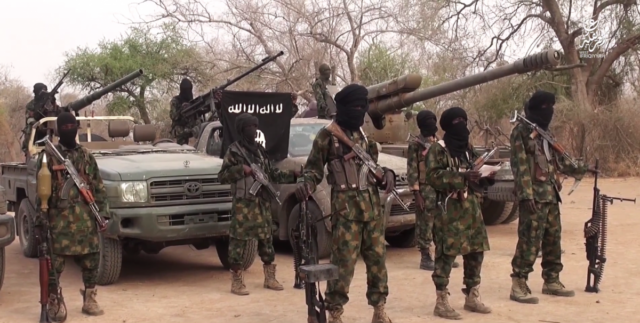
Pro-democracy and civil rights advocacy group HUMAN RIGHTS WRITERS ASSOCIATION OF NIGERIA (HURIWA) has condemned the Federal government for permitting some states in the North-west to negotiate the so-called peace agreement with terrorists, criminal gangs and armed kidnappers, just as the Rights group said the negotiations have undermined and eroded the key elements of Nigeria’s statehood.
HURIWA blames the ambiguities of the Federal government on how to deal decisively with armed brutes killing thousands of Nigerians for the expanding frontiers of terrorist attacks and the unprecedented insecurity in many parts of Nigeria. “Since the Federal Government is creating the impression that it is open to dialogue with terrorists, then more and more desperate criminals would escalate their criminal activities, hoping that they too would merit an invitation for dialogue by the current administration that is already discussing with terrorists in the North West for the so-called peace.
Criminal gang members who are watching the dialogue sessions with terrorists in the North West will automatically become daring and bloody so as to gain attention of the government that is too weak to militarily defeat terrorists and very willing to enter into negotiations for the so-called truce.”
HURIWA which expressed the position that any public office holder or private individual who negotiates with terrorists is also a terrorist, has therefore called on President Bola Ahmed Tinubu to stop the disgraceful surrendering of the Nigerian state to the whims and caprices of a motley crowd of armed bandits, bloodstained terrorists, armed kidnappers and criminal gangs in Katsina and some other states in the Northern States of Nigeria.
HURIWA said there is no doubt that what have played out in the last couple of weeks in Katsina, Zamfara and other places in the North West of Nigeria in the guise of local and state governments negotiating with terrorists for the so-called truce, amounted to the demolition of the four fundamental elements that qualifies Nigeria as a Sovereignty even as HURIWA postulated that the state as a person of international law should possess the following qualifications: (a) a permanent population (people); (b) a defined territory; (c) government (political authority); and (d) capacity to enter into relations with the other states (diplomat recognition or sovereignty).
HURIWA which condemned the negotiations with terrorists, said the impression being created globally with these charades going on in Katsina by way of negotiations for peace with terrorists responsible for killings of dozens of citizens is that Nigeria has gradually lost those key elements of statehood. HURIWA also stated that the negotiations have completely rubbished the determination of the families of victims of terrorism from achieving any sort of closure and justice for the terminations of the lives of their loved ones and the losses of livelihoods they suffered as a result of terrorist attacks.
HURIWA asked rhetorically thus: “Is it not preposterous that whilst the president Tinubu’s government has sanctioned negotiations with terrorists that are wanted by advanced and sophisticated nations such as the United States, the same administration sent out the Vice President Kashim Shettima to the United Nations General Assembly in New York to canvass that Nigeria be made a permanent member of the security council of the United Nations?
“Is this not a pathetic irony to openly demonstrate to the World that Nigeria’s statehood is eroding fast, as demonstrated by the show of shame called peaceful negotiations with terrorists who attended the so-called truce meetings in Katsina state, wielding some of the most sophisticated weapons of mass destruction and other combat weapons of military grades?
Has this government in Nigeria no shame and has the government no respect for the constitution of the Federal Republic of Nigeria? We insist that terrorists must be made to face the full wrath of justice, just as we believe that government is obliged to take justice to terrorists or bring terrorists to justice for their crimes of bloodshed and destruction of livelihoods of Nigerians.
HURIWA recalled that authorities in Nigeria’s northwestern Katsina state reportedly struck a so-called peace deal with criminal gangs in what it says is an effort to end years of violence, a government official confirmed to the media.
HURIWA recalled that Katsina is one of several states in northwestern and central Nigeria terrorized by criminal gangs that the locals refer to as bandits. The federal government, through the Defence Headquarters, had previously declared the leaders of the terrorists groups now negotiating with government as terrorists, even as huge amounts of money was promised as rewards for information leading to their arrests.
HURIWA wondered the logic in negotiating with criminal gangs that continuously raid villages, rape girls and children, kill and abduct residents, as well as torch homes after looting them.
HURIWA recalled that the terrorists and criminal gangs maintain camps in a huge forest straddling Zamfara, Katsina, Kaduna states in the northwest region and Niger state in the country’s central zone and have carried out mass kidnappings of students from schools in recent years.
HURIWA recalled that the Katsina State Government confirmed that a dozen bandit kingpins met with local officials and community leaders in the town of Danmusa, where they renounced violence and pledged to turn a new leaf, Nasiru Mu’azu, Katsina state internal commissioner said.
“There was a peace meeting between 12 bandit leaders and the local community leaders in Danmusa, where the bandits renounced their criminal activities and committed to peace,” Mu’azu said.
The bandits initiated the meeting, he said. “The community welcomed the overtures and agreed to a peace deal as long as the bandits are genuinely interested in peace,” he said.
Katsina state government stated that as a mark of goodwill, the bandits surrendered weapons and released 17 hostages, with the promise to free more people they were holding.
HURIWA said security experts have cautioned against any sort of appeasement of terrorists because, as criminals with zero ideological leaning, the bandits are motivated by financial gains, but their increasing business and operational alliance with jihadists from the northeast has been raising concern among government officials, which is the reason for the illegal negotiations with terrorists.
HURIWA pointed out that in 2023, Katsina state governor Dikko Umar Radda established Katsina Community Watch Corps, comprising around 2,000 vigilantes to assist the military and police in fighting the bandits.
“We have been fighting the bandits for the past two years, and the state governor has reiterated he will not negotiate from a position of weakness,” Mu’azu, the Katsina state official said.
In the media statement by the National Coordinator, Comrade Emmanuel Nnadozie Onwubiko, HURIWA reiterated its position of zero tolerance for any sort of negotiations with terrorists because that would amount to state surrender.
“We are asking President Tinubu to stop these acts of treason in the name of negotiations with terrorists. We believe that no matter the quantum of cash paid out to these terrorists now dialoguing with Katsina and other Northern governments, the moment the blood money finishes, these terrorists who are already used to making hundreds of millions of blood money will simply return to their familiar terrains of terrorism and when they do return, they would be even more vicious than they are now.”
COMRADE EMMANUEL NNADOZIE ONWUBIKO,
NATIONAL COORDINATOR,
HUMAN RIGHTS WRITERS ASSOCIATION OF NIGERIA (HURIWA).
MONDAY SEPTEMBER 29TH 2025.
News
Corruption Becoming Endemic Now: HURIWA Says
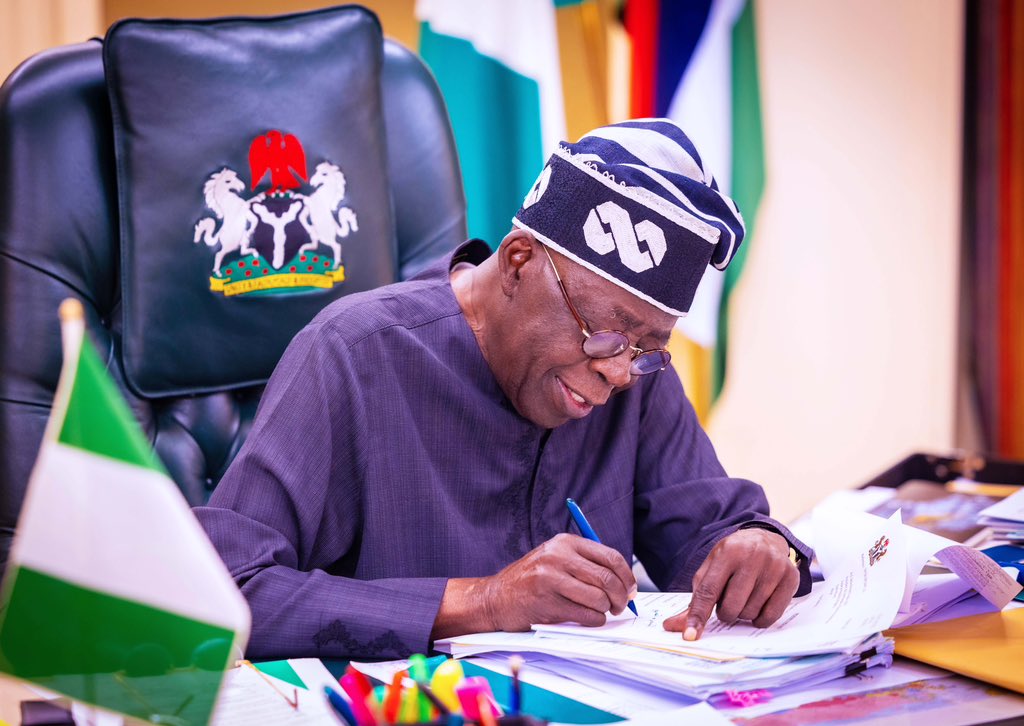
TASKS government on transparency in conditional cash transfer
Civil Rights advocacy Group HUMAN RIGHTS WRITERS ASSOCIATION OF NIGERIA (HURIWA) has expressed worry about the apparent inability of the Federal government to come clean on how N330 billion was disbursed to 8.1 million households without any compliance with the principles of transparency and accountability. “Most Nigerians are wondering whether this huge sum of public funds were shared to ghosts or to real citizens since these households are not known by millions of Nigerians.”
Besides, HURIWA has raised alarm that corruption is perceived to be so high within the government circles even as the Rights group said it was wrong for President Tinubu to keep silent in the face of mounting accusations of corruption affecting some of his appointees including the allegations of acquisitions of exotic housing assets by the Minister of the Federal capital territory Mr. Nyesom Wike with allegedly looted public funds.
HURIWA recalled that the federal Government had few days ago, announced that it has disbursed a total of N330bn to 8.1 million households across the country under the National Social Safety Net Programme, aimed at cushioning the harsh effects of economic reforms on Nigeria’s poorest and most vulnerable citizens.
The disclosure was made in Abuja by the Minister of Finance and Coordinating Minister of the Economy, Wale Edun, after a review meeting of the Special Presidential Panel on Social Investment, inaugurated by President Bola Tinubu in February.
Edun explained that the programme, which experienced delays earlier in the year, was now firmly back on track following the successful integration of biometric data through the National Identification Number. This integration, he said, was crucial to ensuring transparency, curbing leakages, and eliminating political interference.
According to the minister, out of the 19.7 million households captured in the National Social Register—representing about 70 million Nigerians—8.1 million households have already received at least one tranche of the N25,000 stipend. Some beneficiaries have received two or three payments depending on verification outcomes.
Reacting to the widespread failure of the Federal Government to evidently show believable proof of how this humongous cash were disbursed and to clearly publicise the identities of these beneficiaries, HURIWA said it is shocking that a democratically elected government put in place by the people, could come up with such seemingly phantom claim to have distributed financial lifelines to some impoverished citizens without any concrete evidence.
In a media statement by the National Coordinator Comrade Emmanuel Onwubiko, HURIWA criticised the federal ministry of Finance and the Coordinating ministry for the Nigerian economy for issuing out the press statement making the claim that can’t be empirically verified just as the Rights group said over ten thousand members of the organisation spread across the Country has not reported knowing or hearing about any Nigerian poor citizens/households who benefitted from the cash redistribution by the federal government.
“We are challenging the Federal Ministry of Finance and the Coordinating Minister of the Economy to prove to Nigerians that his ministry paid out the sum of N330 bn to 8.1 million households by publishing on the website of the ministry and newspapers the identities of the beneficiaries, their locations and the number in each of the benefiting states or local government areas. This demand is made in good faith because we have been unable to see or know anyone out of this 8.1 million households that got the N25,000. As citizens of Nigeria, we are entitled to be adequately informed because the methodology said to have been adopted by the government in redistribution of this taxpayers’ money is opaque and lacks ingredients of transparency and accountability.”
HURIWA is also urging President Bola Ahmed Tinubu to speak up about the growing accusations of corruption against some of his cabinet-level appointees one of which is the minister of the FCT.
HURIWA recalled that former presidential candidate of the African Action Congress (AAC) in the 2023 election, Omoyele Sowore, had petitioned the Attorney-General of Florida, James Uthmeier, demanding the forfeiture and prosecution of alleged multi-million-dollar properties secretly acquired in the United States by the Minister of the Federal Capital Territory, Ezenwo Nyesom Wike.
In a petition signed by his counsel, Deji Adeyanju, dated September 22, Sowore alleged that Wike, alongside his wife, Justice Eberechi Suzzette Nyesom-Wike of the Nigerian Court of Appeal, unlawfully purchased three lakeside properties in Winter Springs, Florida, worth over $6m.
The petition claimed the acquisitions were “conducted entirely in cash, thereby circumventing banking oversight and raising significant money laundering concerns.”
According to the documents, the properties include 113 Springcreek Lane, purchased for $535,000 and transferred to Jordan Wike; 209 Hertherwood Court, purchased for $459,157 and transferred to Joaquin Wike; and 208 Hertherwood Court, purchased for $465,000 and transferred to Jazmyne Wike.
The petition stressed that Wike, “a career politician with no record of legitimate private enterprise,” could not have earned the income to fund such acquisitions, adding that the assets were not declared to Nigeria’s Code of Conduct Bureau in violation of constitutional obligations.
Sowore, in his petition, stated that, “The evident pattern in this case involves large cash acquisitions by a long-serving public officer with no legitimate private earnings, the immediate transfer of title to his children, and the concealment of true beneficial ownership.
HURIWA said: “Whilst we await the decision of the foreign entity regarding the petition said to have been sent to them, accusing the minister of FCT of illegally buying up juicy housing assets in the USA using allegedly looted public funds. But we expect that when such a very weighty accusations are made consistently against a serving minister, the President ought to publicly make a statement regarding what the position of his government is especially given that the President told the World in Brazil that his administration is waging a relentless war against corruption.”
“We know that when accusations of corruption was made by the then minister of Humanitarian Affairs and Poverty Alleviation, President Tinubu suspended and thereafter fired the minister from her duty. Nigerians expect that since nobody is above the law, when accusations of corruption are made against a Nigerian public office holder, the appointing authority is expected to weigh in one way or the other so the citizens are assured of the government’s commitment to the war against corruption. The President should also direct the Minister of Finance to furnish Nigerians with verifiable evidence to prove that government actually disbursed N330 billion to some poor households”.
-

 News10 months ago
News10 months agoNUJ FCT Council Mourns The Loss of Senior Journalist, Isaiah Abraham
-
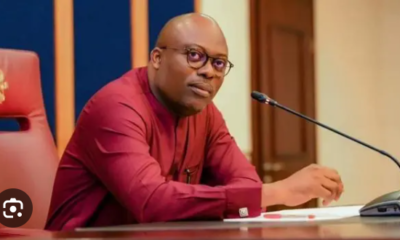
 News10 months ago
News10 months agoHURIWA Declares Governor Fubara’s Emergence as Divine, Urges Support for Rivers State’s Progress
-
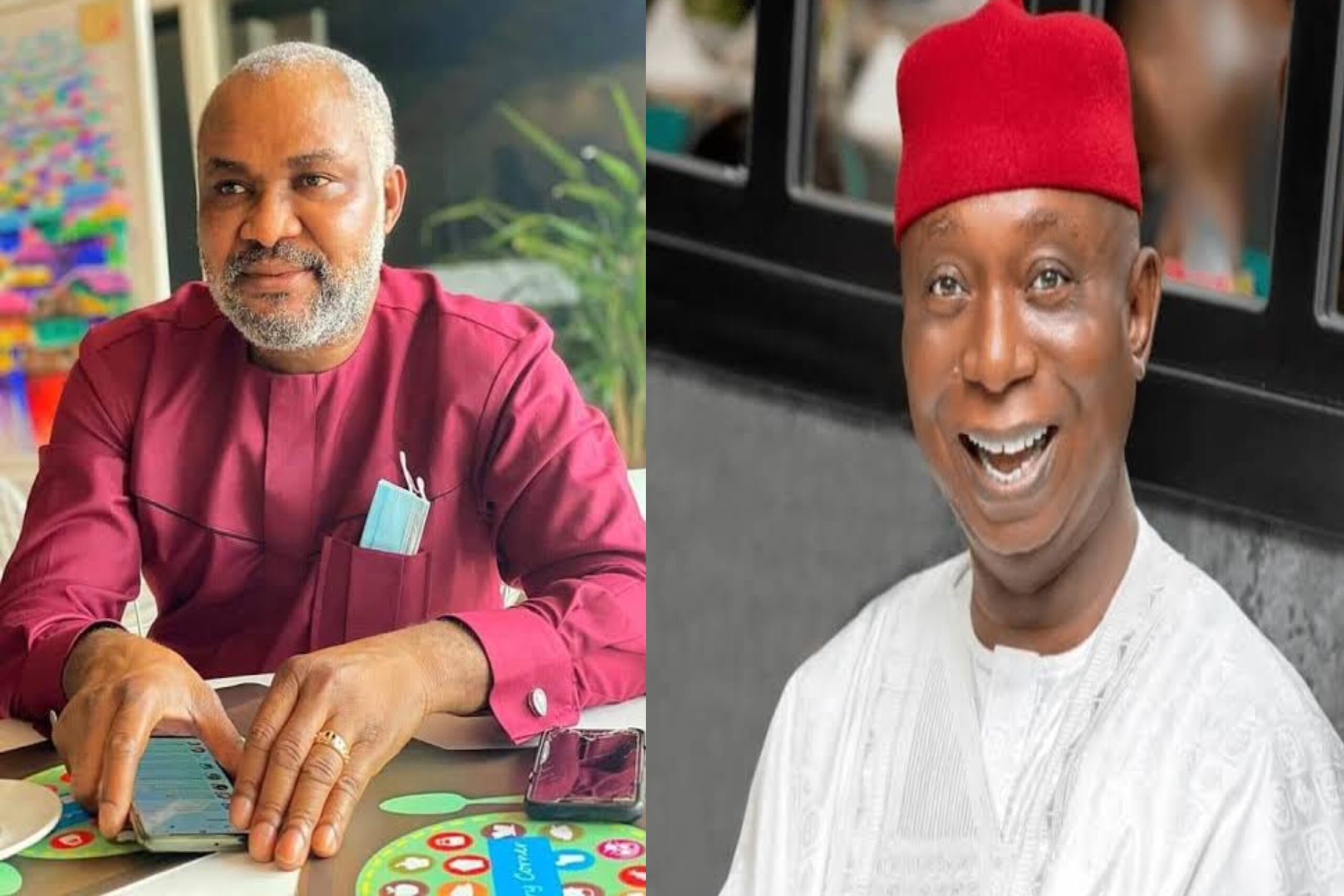
 News10 months ago
News10 months agoAnioma State as panacea to South-East marginalization – By Emmanuel Onwubiko
-

 Opinion8 months ago
Opinion8 months agoNIGERIAN WOMAN IN DIASPORA, CULTURAL SHOCKS – By Stacey Ukaobasi Onwuegbuchulam
-
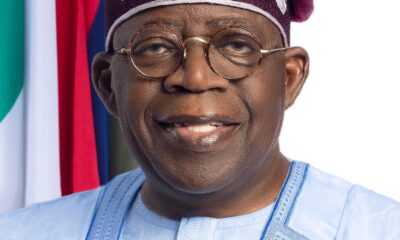
 News11 months ago
News11 months agoHURIWA Blames Serial Stampedes on Weaponized Poverty, Warns of Nigeria’s Rapid Decline
-
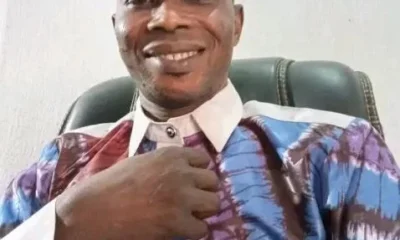
 News10 months ago
News10 months agoJealous Husband Stabs Nigerian Bishop To Death Over Suspicion Of Sleeping With Estranged Wife
-
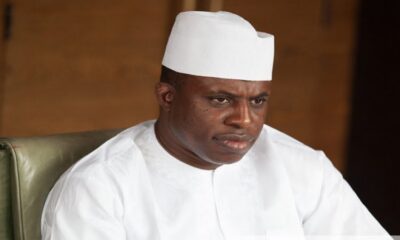
 News10 months ago
News10 months agoTinubu sympathizes with ex-speaker Bankole on the death of his mother
-
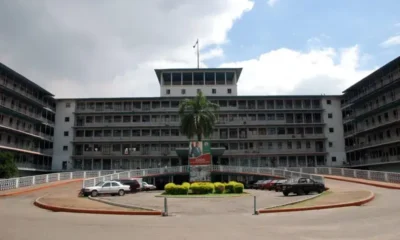
 Health8 months ago
Health8 months agoA complete list of 154 healthcare facilities across Nigeria that provide free emergency obstetric care and VVF (Vesico-Vaginal Fistula) surgeries.


